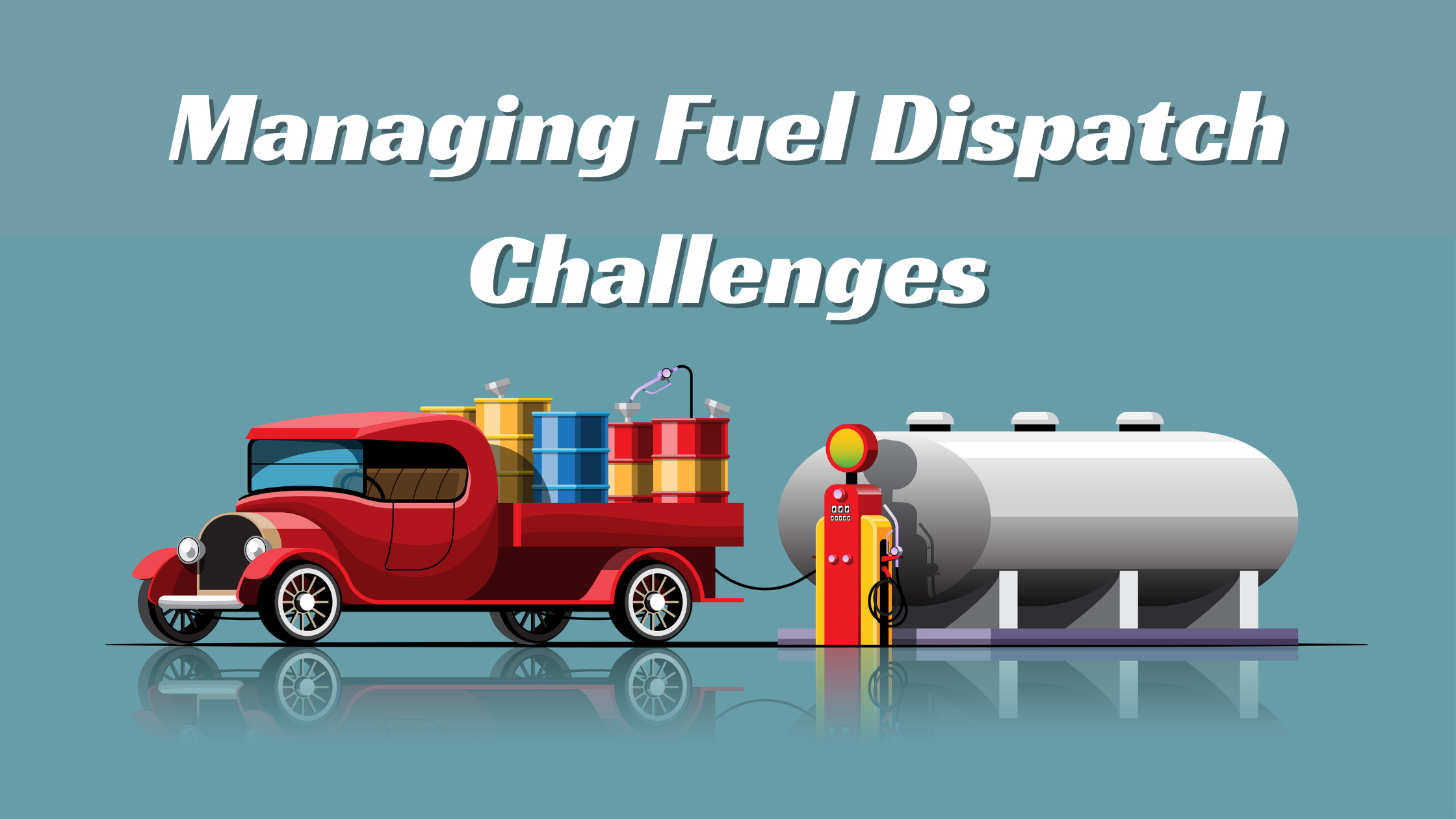Managing Fuel Dispatch Challenges: Solutions for Common Industry Issues
- 1 Understanding Fuel Dispatch
- 2 Common Challenges in Fuel Dispatch
- 2.1 1. Inventory Management
- 2.2 2. Scheduling Deliveries
- 2.3 3. Fuel Theft
- 2.4 4. Fuel Quality Control
- 2.5 5. Regulatory Compliance
- 2.6 6. Customer Communication
- 2.7 7. Fuel Cost Management
- 2.8 8. Data Management and Analysis
- 3 Best Practices for Effective Fuel Dispatch Management
- 3.1 1. Invest in Technology
- 3.2 2. Train Your Team
- 3.3 3. Regular Maintenance
- 3.4 4. Monitor Performance
- 3.5 5. Foster Strong Supplier Relationships
- 3.6 6. Implement Continuous Improvement
- 4 Conclusion
Fuel dispatch is crucial for many industries, especially those that rely on vehicles for operations like transportation and logistics. However, managing fuel dispatch can be challenging. Here’s a guide to help you understand common problems and how to solve them.
Understanding Fuel Dispatch
Fuel dispatch involves the planning, managing, and delivering of fuel to vehicles or machinery. It includes scheduling deliveries, managing inventory, and ensuring fuel reaches its destination on time. Efficient fuel dispatch is essential for maintaining operations and reducing costs.
Common Challenges in Fuel Dispatch

1. Inventory Management
Problem: Managing fuel inventory can be tricky. Overestimating needs can lead to excess fuel, which is costly and might go unused. Underestimating can cause shortages, disrupting operations.
Solution: Implement a fuel management system to accurately track usage and inventory levels. Use real-time data to forecast fuel needs based on consumption patterns and upcoming demands. This helps maintain optimal inventory levels, reduce waste, and ensure availability.
2. Scheduling Deliveries
Problem: Poor scheduling can lead to delayed deliveries or inefficient routing. This might result in increased fuel costs and operational delays.
Solution: Use route optimization software to plan the most efficient delivery routes. Consider factors like traffic patterns, delivery windows, and vehicle capacities. Scheduling tools can also help planners plan deliveries ahead of time and adjust plans as needed.
3. Fuel Theft
Problem: Fuel theft is a significant concern. It can occur during transit or from storage tanks, leading to financial losses.
Solution: Implement security measures such as surveillance cameras, secure storage facilities, and vehicle GPS tracking. Regularly audit fuel usage and inventory to detect any discrepancies quickly. Installing fuel management systems with alerts for unusual usage patterns can also help prevent theft.
4. Fuel Quality Control
Problem: Poor fuel quality can damage engines and machinery, leading to costly repairs and downtime.
Solution: Regularly test fuel quality before dispatch. Ensure that storage tanks and delivery equipment are clean and well-maintained. Work with reliable suppliers who meet quality standards. Implement a system to monitor and manage fuel quality throughout its lifecycle.
5. Regulatory Compliance
Problem: Fuel dispatch operations must comply with various environmental and safety standards. Non-compliance can result in fines and legal issues.
Solution: Stay updated on regulatory requirements related to fuel storage, handling, and transportation. Implement compliance training for staff and conduct regular audits to ensure adherence to regulations. Use software tools that help track compliance and generate necessary reports.
6. Customer Communication
Problem: Poor customer communication can lead to misunderstandings, missed deliveries, and dissatisfaction.
Solution: Establish clear communication channels with customers. Use automated notifications to update customers on delivery status and any potential delays. Implement a feedback system to address customer concerns and improve service quality.
7. Fuel Cost Management
Problem: Fluctuating fuel prices can affect budgeting and cost management.
Solution: Monitor fuel price trends and negotiate contracts with suppliers to lock in favorable rates. Consider using fuel hedging strategies to protect against price volatility. Implement cost control measures and regularly review fuel expenses to identify areas for savings. By leveraging fuel dispatch software, you can gain real-time insights into fuel consumption and optimize delivery routes to further cut costs.
8. Data Management and Analysis
Problem: Managing large amounts of data from fuel dispatch operations can be overwhelming.
Solution: Fuel management software to collect, analyze, and report data. This software can help track fuel consumption, delivery performance, and inventory levels. Data analysis can provide insights into operational efficiency and identify areas for improvement.
Best Practices for Effective Fuel Dispatch Management
To overcome these challenges and improve fuel dispatch management, consider the following best practices:
1. Invest in Technology
Investing in advanced technology can significantly enhance fuel dispatch operations. Fuel management systems, GPS tracking, and route optimization software can streamline processes and improve efficiency.
2. Train Your Team
Proper training for your dispatch team is crucial. Ensure they understand the technology and procedures involved in fuel dispatch. Training should also include safety protocols and regulatory compliance.
3. Regular Maintenance
Regular maintenance of storage tanks, delivery vehicles, and equipment is essential. This helps prevent fuel leaks, equipment failures, and safety hazards.
4. Monitor Performance
Regularly monitor and review the performance of yoPerformancepatch operations. Use key performaPerformanceors (KPIs) to measure efficiency, cost-effectiveness, and customer satisfaction. Analyze the data to identify trends and make informed decisions.
5. Foster Strong Supplier Relationships
Building solid relationships with fuel suppliers can lead to better service and pricing. Regularly communicate with suppliers to ensure reliable deliveries and address any issues promptly.
6. Implement Continuous Improvement
Fuel dispatch operations should continuously evolve to meet changing needs and challenges. Implement a culture of continuous improvement by regularly reviewing processes, seeking feedback, and adopting new technologies.
Conclusion
Managing fuel dispatch effectively requires addressing various challenges, from inventory management to regulatory compliance. By understanding common issues and implementing practical solutions, you can improve efficiency, reduce costs, and ensure reliable fuel delivery. Investing in technology, training your team, and monitoring performance are critical to successful fuel dispatch management. You can overcome the challenges with the right strategies and practices and keep your operations running smoothly.

















